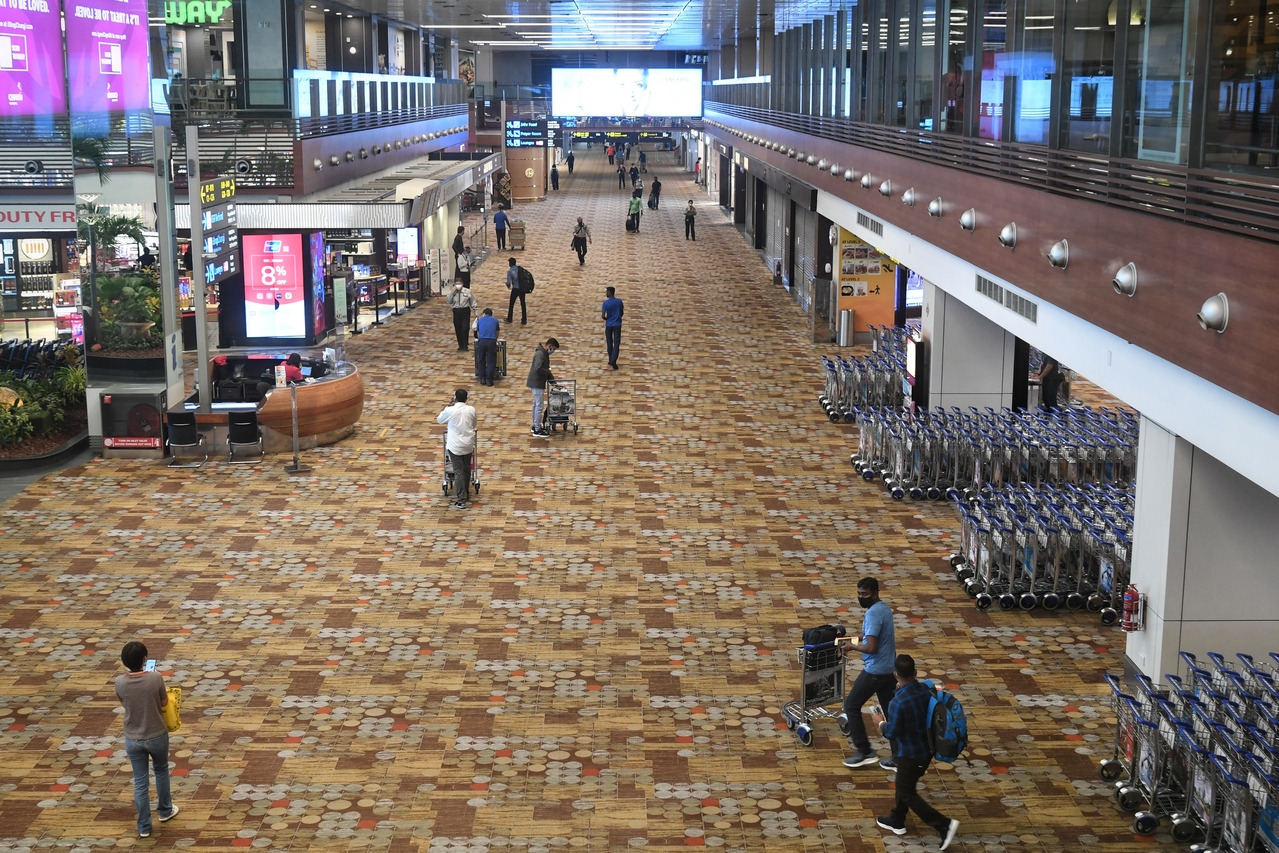1,200 travellers daily at Changi in March, but number of new workers still insufficient: Lawrence Wong
Sign up now: Get ST's newsletters delivered to your inbox

Before Covid-19, Singapore had 200,000 travellers going through Changi Airport every day.
ST PHOTO: KUA CHEE SIONG
Follow topic:
SINGAPORE - Arrivals at Changi Airport have increased from about 820 a day last November to 1,200 in March.
Giving an update to the House on the Government's response to Covid-19 on Tuesday (May 11), Education Minister Lawrence Wong said in Parliament that one reason for this increase is the taking in of more migrant workers in the construction, marine and process (CMP) sectors, as well as foreign domestic workers.
This group was also the largest contributor to Singapore's imported cases, at about 40 per cent over the past six months, although a tighter screening and quarantine process was implemented even as the numbers went up, he said.
"These imported cases were already in SHN (stay-home notice) when we detected them, and were not in contact with the community," he said, adding that the increased inflow was still insufficient to meet the needs of firms here.
Mr Wong also said that while there was no medical evidence that new Covid-19 variants have a longer incubation period, there was always a "very small tail risk" of such cases.
This was why Singapore moved recently to a tighter, 21-day SHN regime for travellers from all higher-risk countries during this period of heightened alert in May, he said.
He was addressing questions from MPs about Singapore's border measures in his speech, as well as the need for more restrictions when more clusters were found, such as the recent one at Tan Tock Seng Hospital.
While there has been a spike in community cases recently, this was not the first time that Singapore has had to deal with them, said Mr Wong, co-chair of a multi-ministry task force handling Covid-19.
Compared with a year ago, the nation's capabilities have strengthened significantly, and testing capacity is now much larger.
About 35,000 swabs were tested daily in the past week, and there is the capacity to test up to 73,000 per day, and even more with pooled testing, he pointed out.
"TraceTogether and SafeEntry are more pervasive, which means we can contact trace and ring-fence cases more quickly. We are also regularly testing persons in higher-risk settings and undertaking surveillance testing for symptomatic individuals, which is how we uncovered many of the cases reported over the recent days."
In addition, vaccination was a major game changer, said Mr Wong.
While not everyone has been vaccinated yet, most of the older population as well as healthcare and front-line workers have been covered.
"This puts us in a much safer position."
On border measures, Mr Wong said that while one option is to shut borders - an approach that has been taken by larger or resource-rich countries - Singapore is in a "completely different position".
"We are a little red dot fully plugged into the world. Trade and travel are our lifeblood - for us, these are not just good-to-have; they are existential issues.
"They are how, as a country, we earn a living and, remain relevant to the world," he added, noting that travel restrictions have been slowly lifted in a controlled and safe manner after the country exited the circuit breaker in June last year.
Before Covid-19, Singapore had 200,000 travellers going through Changi Airport every day, both on transit as well as entering Singapore, he said. This plummeted during the two-month circuit breaker when borders were closed temporarily.
Some travel restrictions were eased after the circuit breaker. By November last year, there were about 820 arrivals a day. Between December last year and March, there were about 1,200 travellers who arrived from Changi Airport a day, he added.
But this inflow of workers for the CMP sectors is still unable to meet the country's needs to date.
"Because every day, every week, every month, many migrant workers have left to go back to their home countries. Whatever numbers we are bringing in barely replace those who have left," Mr Wong said.
Singapore companies, including many small and medium-sized enterprises, urgently need workers to make up the shortfall, and the application backlog has been building up significantly.
This was even before the latest set of travel restrictions on the South Asian region were imposed. "Now the manpower crunch has worsened," he said.

